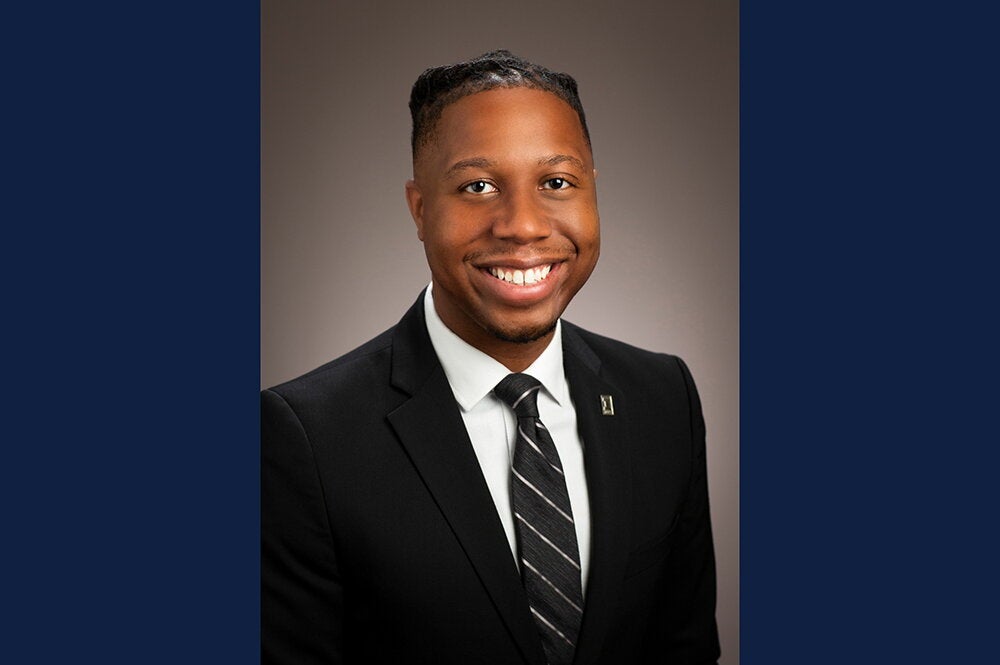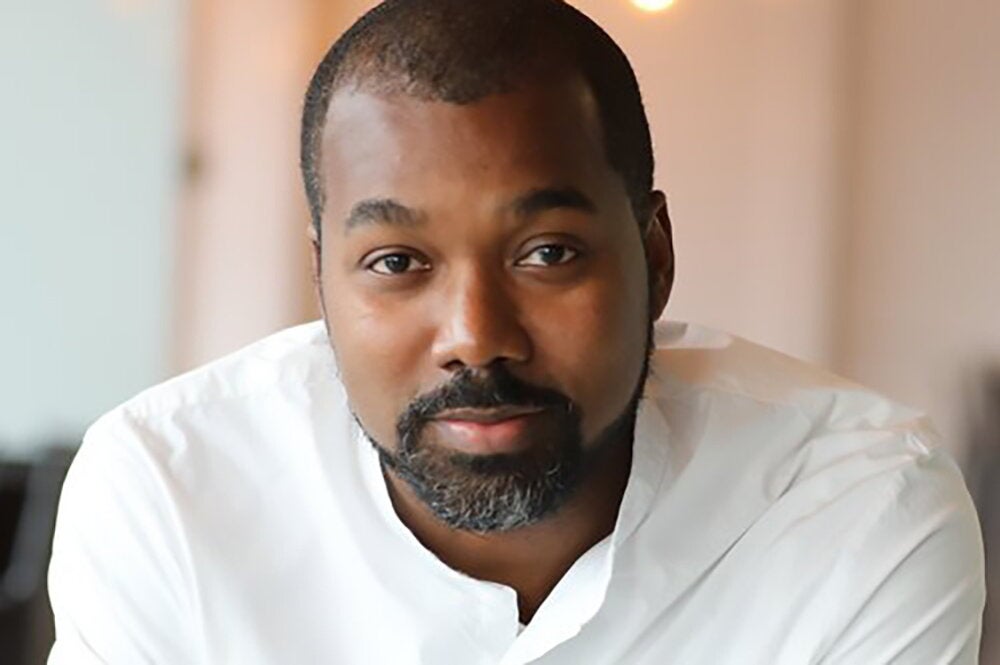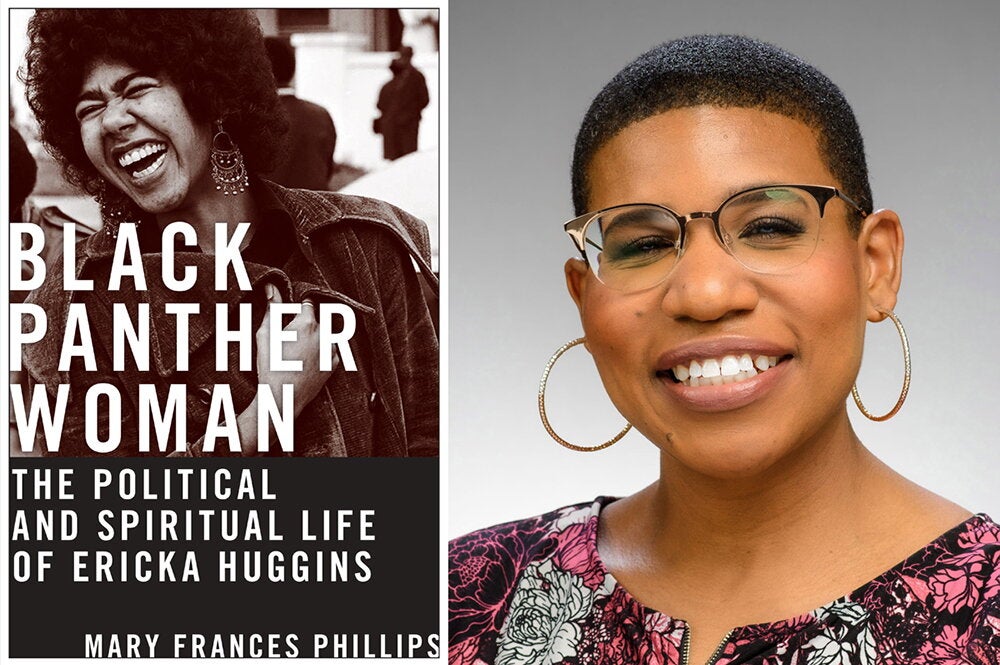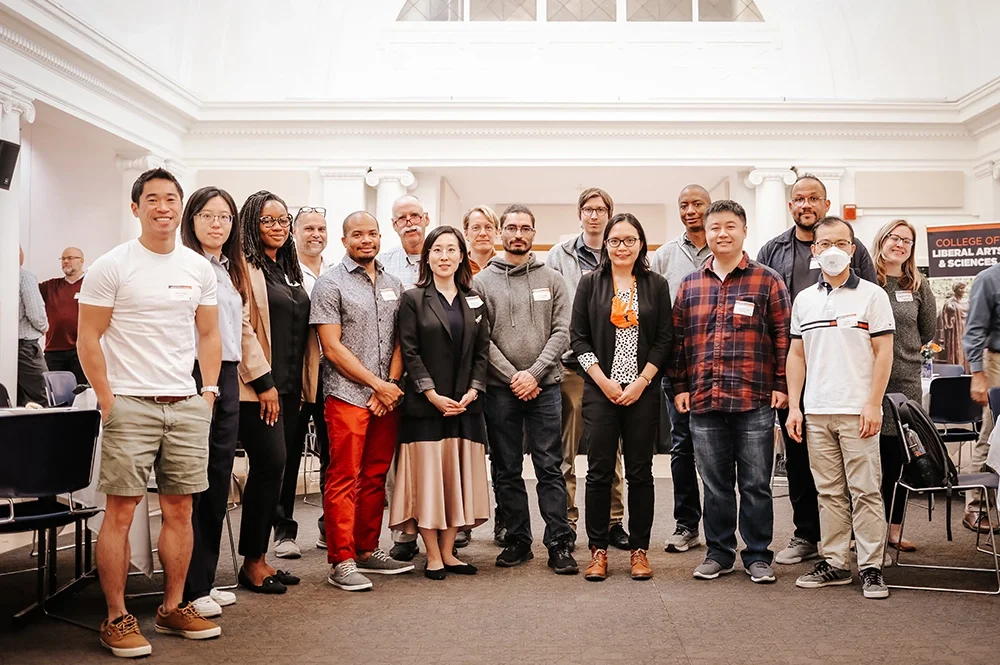
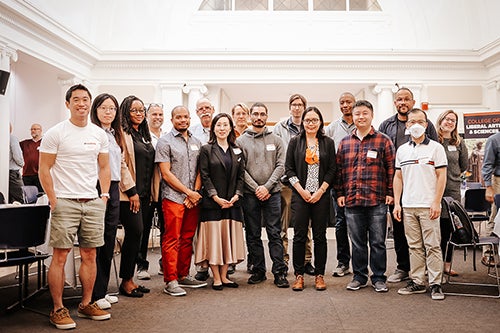
The College of LAS is welcoming 38 new professors for the 2022-23 academic year. Their new positions range from clinical professors to assistant professors and an endowed position in more than 20 academic units, ranging from African American studies to economics, philosophy, statistics, and several others.
Most of the new faculty members started their new roles at the beginning of the fall semester, but some arrived later in the semester or are scheduled to start in January.
“Bringing in new people each year is invigorating and important for the College of LAS,” said Venetria K. Patton, Harry E. Preble Dean of the College of LAS. “New faculty members bring new ideas, new energy, and new knowledge that help make us stronger and more insightful. Our new people come from all over the world. They are promising, accomplished, and will help make LAS even better.”
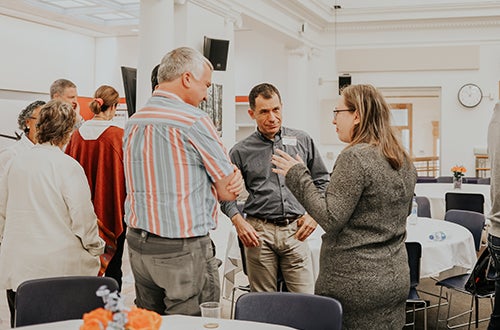
The College of LAS hosted a reception for the new faculty members earlier this fall. Anna Torres-Cacoullos, a professor in the Department of Spanish & Portuguese, said that she was raised in New Mexico, where speakers of English, Spanish, and Native American languages coexist. Now at the U of I, she hopes to aid efforts to support minority populations on and around campus.
“As a student of literature, I realized that stigmatization against Hispanic and Latin American cultures and ways of life was based on a broken understanding of community,” Torres-Cacoullos said. “Now as a scholar and teacher of Spanish literature and culture, I’ve become committed to foregrounding the relationship of literary studies to other areas of sociocultural inquiry and developing strategies that promote historical, cultural, and artistic awareness.”
Torres-Cacoullos said she came to Champaign-Urbana because of the world class research and research support offered to scholars on campus. The campus, she said, is an important center for the support of historical, cultural, and artistic awareness of Latina/Latino and minority communities.
Her research spans a broad range of topics in literature, film, and philosophy. While she specializes in late 19th to early 20th century Spanish literature and culture, her work has also considered questions about gender, race, and body politics in contemporary literary and film productions emerging from Spain.
“In today’s global political climate increasingly marked by xenophobia and prejudice, an understanding of diverse ways of life is perhaps one of the greatest challenges facing us today,” Torres-Cacoullos said. “In my research and teaching I seek to make diversity a cornerstone for understanding current issues, and to help equip my students to address new conflicts.”
For Kevin Van Bortle, a new professor in the Department of Cell & Developmental Biology, coming to the University of Illinois was an easy decision. The professor has studied gene regulation and development for more than a decade and feels that being in Champaign-Urbana allows him to take his research further.
“It’s no secret that this campus is a hub for interdisciplinary research, there’s the Beckman Institute, the Carl R. Woese Institute for Genomic Biology, the Cancer Center at Illinois, and that’s just the start. You really can’t ask for more,” Van Bortle said. “My team is working to deconstruct the mechanisms that allow cancer cells to produce specific RNAs that help cells proliferate. The resources on this campus give us an opportunity to make important discoveries.”
But he doesn’t just examine cells all day. Van Bortle appreciates the beauty of campus and also has a love for music that began in grade school.
“I do have hobbies! One thing I do when I need to get away from everything is play the saxophone,” Van Bortle said. “I don’t play as much as I used to, but I like to pick it up and break off the rust when I can.”
Daniel Maroun, a new professor in the Department of French & Italian, has worked at the U of I since 2017, but he was recently hired as a tenure track faculty member. Now as an assistant professor he hopes to continue exploring research avenues that are tied together by queer kinship, sexual identity, citizenship and how individuals navigate these issues.
“My research looks at new performances of acceptable masculinity and how they're interrelated, whether they confront classical notions like fatherhood, heterosexuality, strength, and virility,” Maroun said. “For example, one of the biggest notions with HIV/AIDS is that you're not really a man if you have HIV/AIDS, because men are supposed to be strong and disease-proof. So what my research looks at is how those men create their own performances of masculinity that not only push back on what classical notions are, but are equally justifiable.”
Maroun’s research is aimed specifically at Francophone communities, an area he is familiar with as a first generation Lebanese academic. He’s learned to examine kitchens as an area of cultural significance.
“I was in the kitchen a lot during my childhood, and I think for a lot of individuals who were always in the kitchen, the kitchen is a safe space, the kitchen is a place of culture, the kitchen is a place of learning,” Maroun said. “Once I moved to France, that's when I really started to get into cuisine, learning about what food can do for an individual, breaking it down to not just mom's recipes and grandma's recipes, but really unpacking what food is. So it's nice to be able to bring in my influence to a department where we share a common language—French—but we also have these diverse cultural backgrounds.”
A full list of new faculty follows:
Leo Alexander III, psychology
Kirk Barrow, astronomy
David Beck, history
Jochen Bojanowski, philosophy
Keva Bui, Asian American studies
Anna Torres-Cacoullos, Spanish and Portuguese
Víctor Cervantes, psychology
Stewart Coles, communication
Gökçe Dayanikli, statistics
Dominic Evangelista, entomology
Daniela Alonso Fontes, economics
Brooklyne Gipson, communication
Jozien Goense, psychology
Tasha Holden, psychology
Chris Kempf, English
Rana Khoury, political science
Minkyung Kim, communication
Marynia Kolak, geography and geographic information science
Alexa Kuenstler, chemical and biomolecular engineering
Rosalyn LaPier, history
Yuan Liu, mathematics
Ross Maguire, geology
Daniel Maroun, French and Italian
Charlesia McKinney, English
Marcelo Medeiros, economics (Jorge Paulo Lemann Endowed Chair)
Anna Mendoza, linguistics
Hanna Muller, linguistics
Eddie O'Byrn, African American studies
Timur Oikhberg, mathematics
Michael Rizzo, psychology
Joshua Shea, economics
Benjamin Snyder, chemistry
Kevin Van Bortle, cell and developmental biology
Mirelsie Velázquez, Latina/Latino studies
Wei Wei, mathematics
Anna Whittington, history
Yujeong Yang, political science
Bo Zhang, psychology
